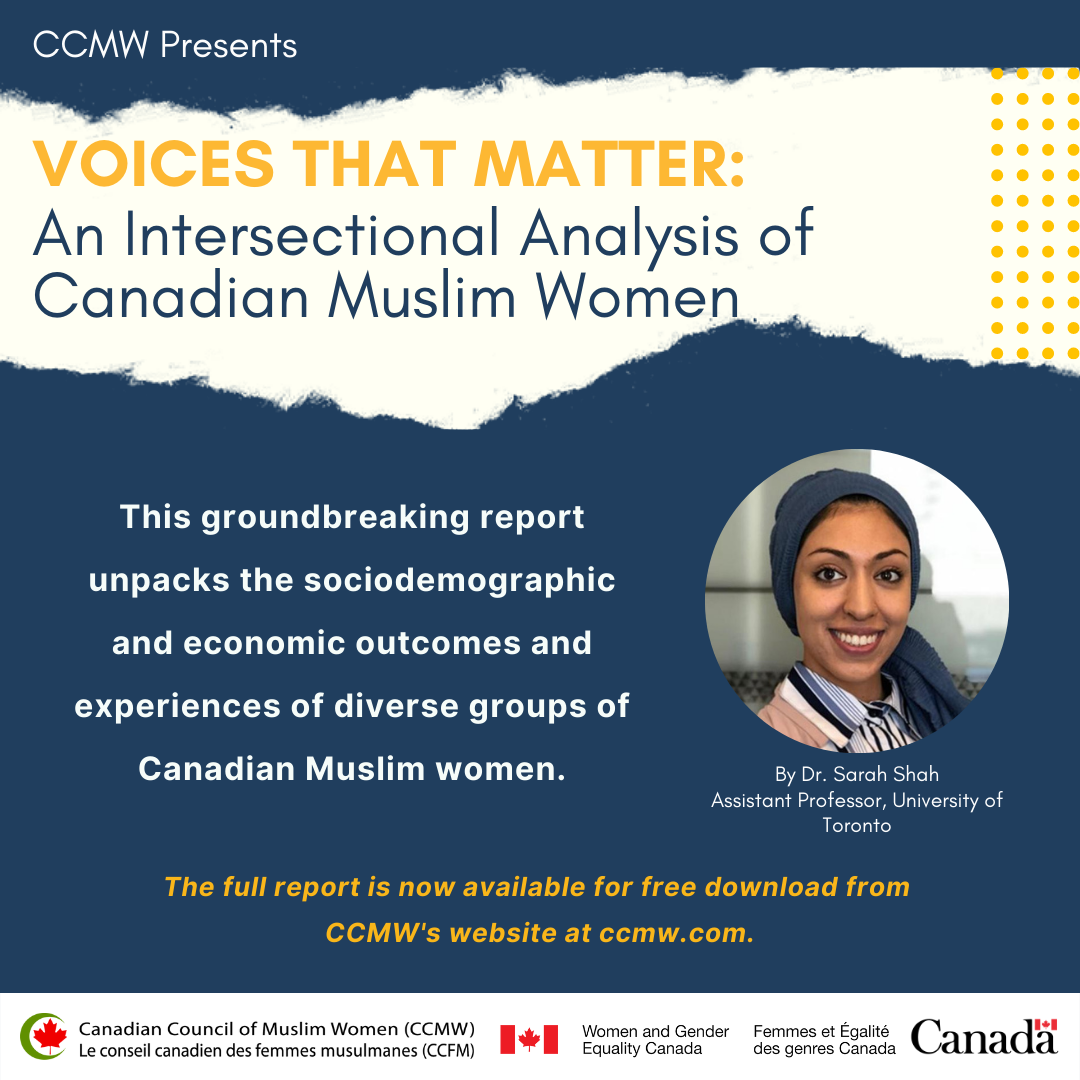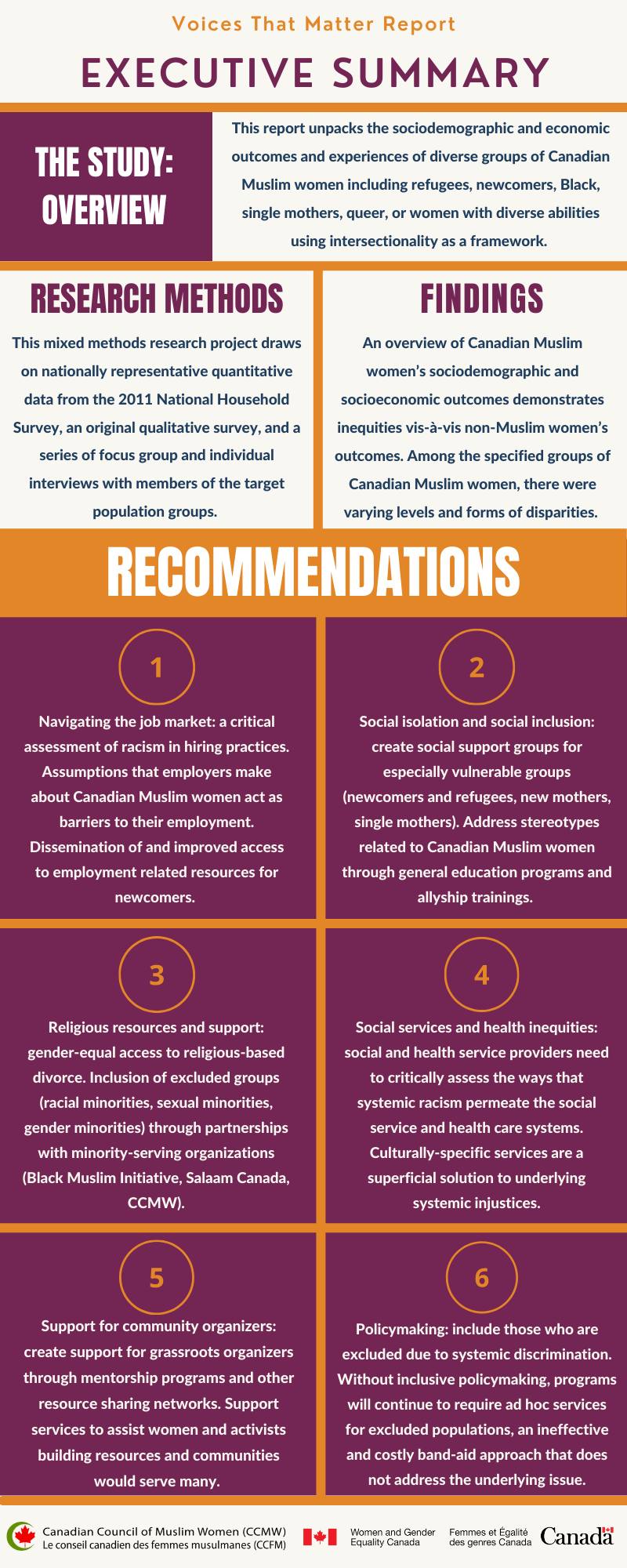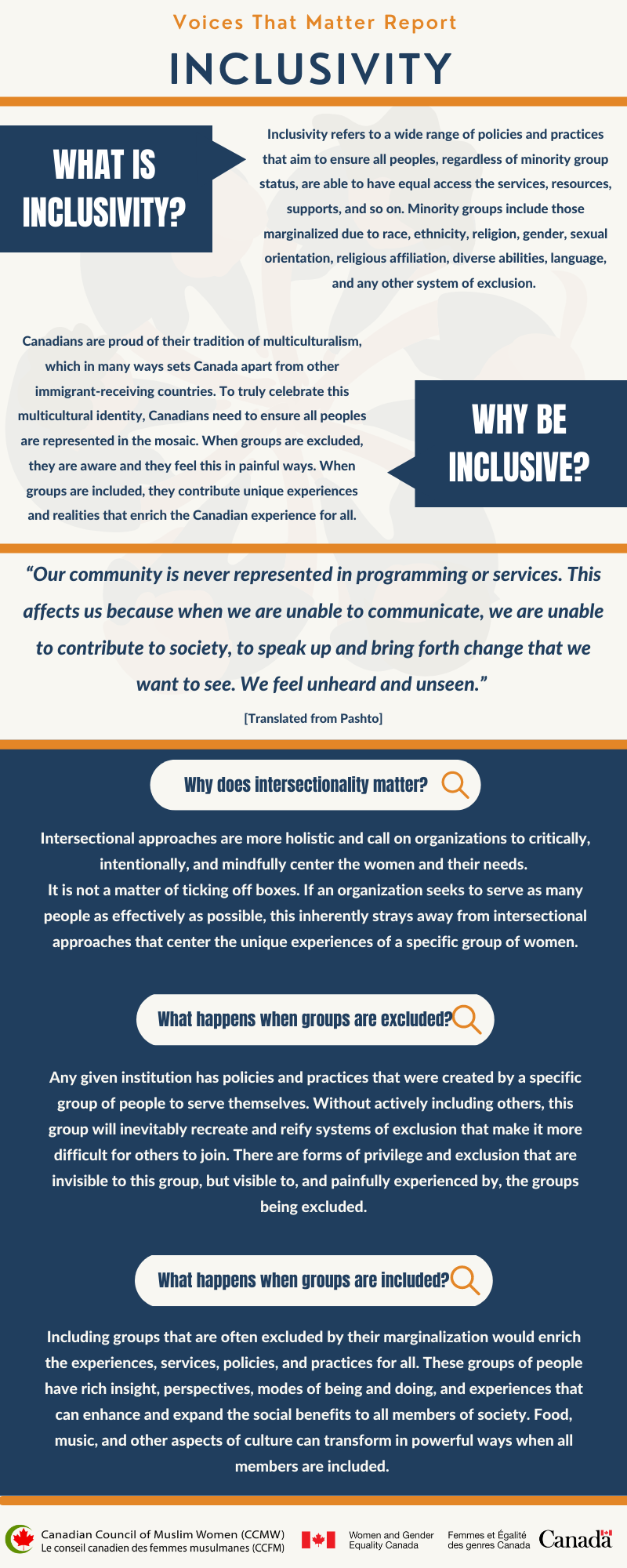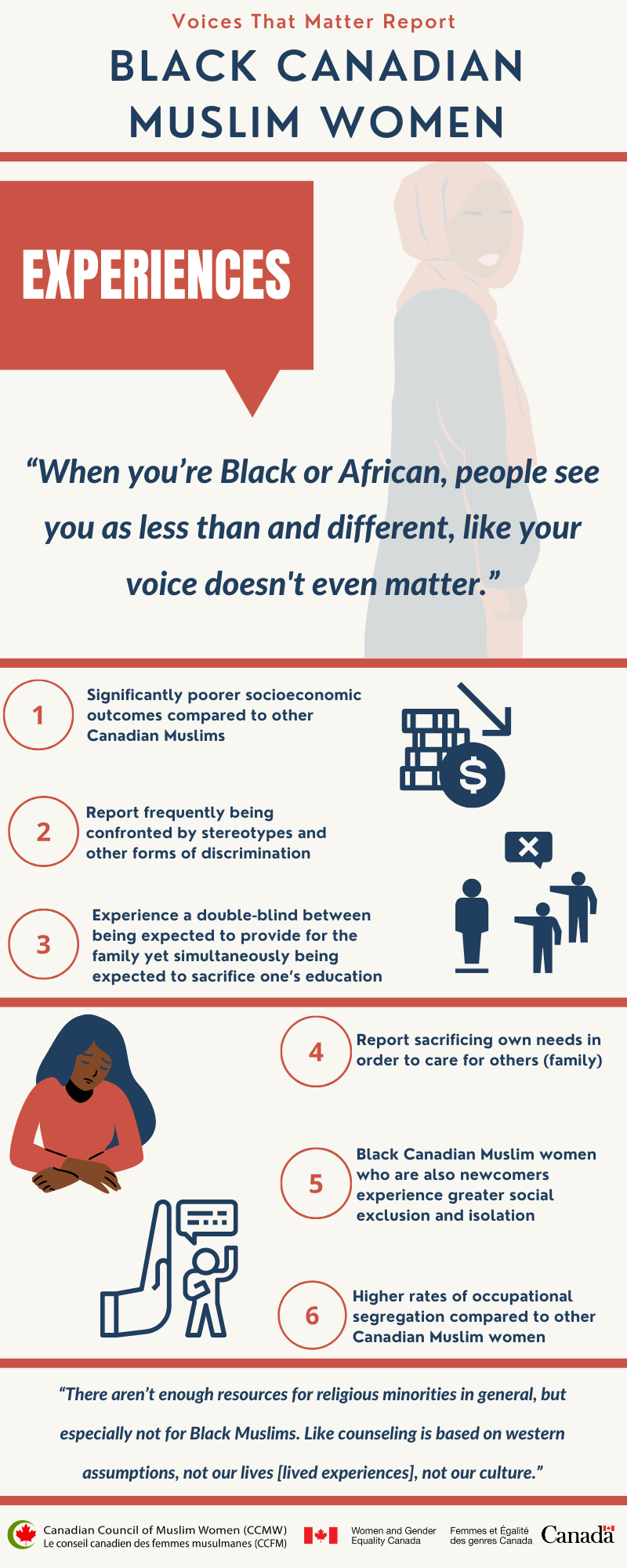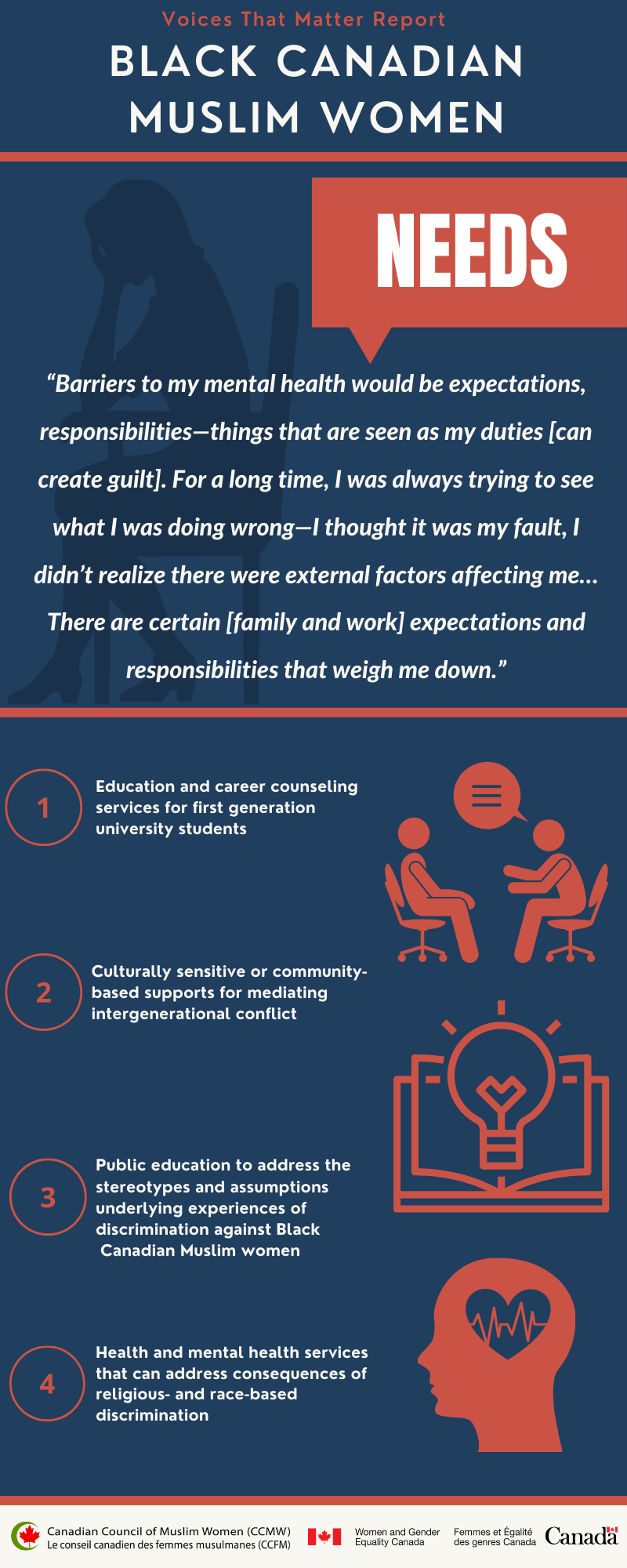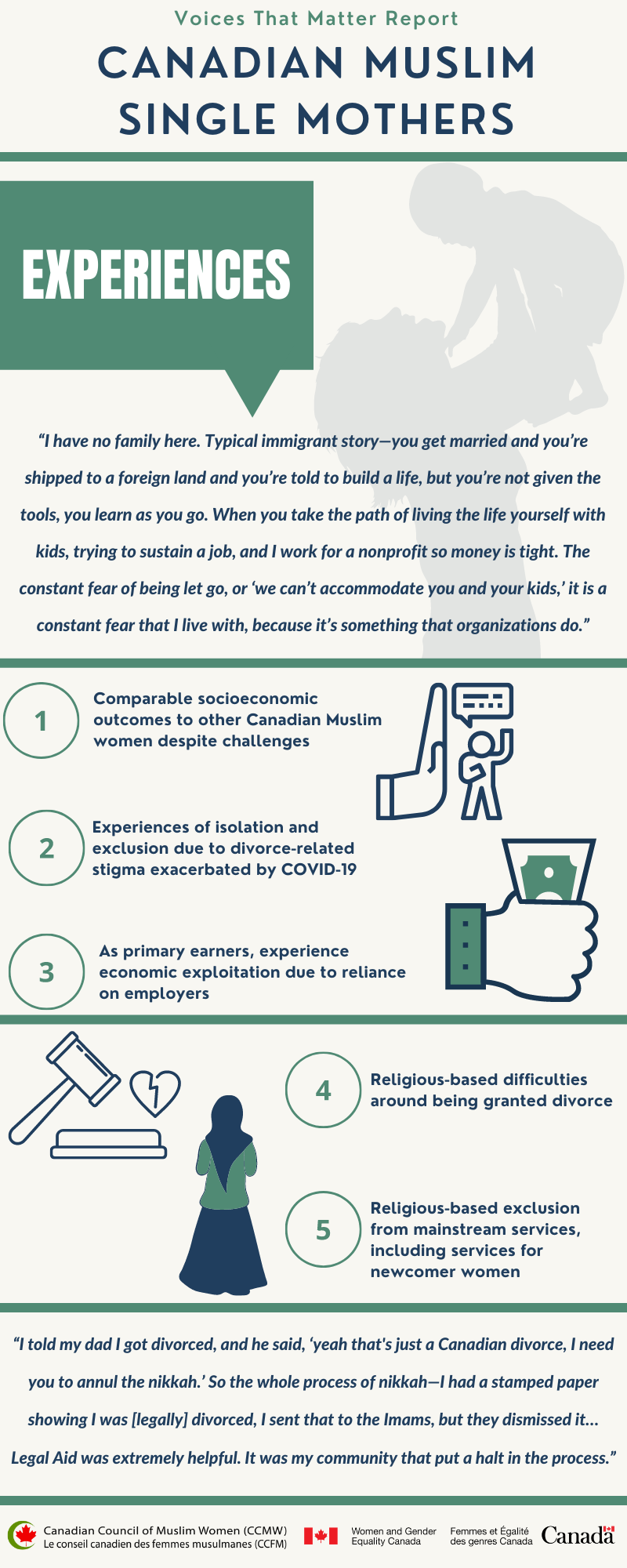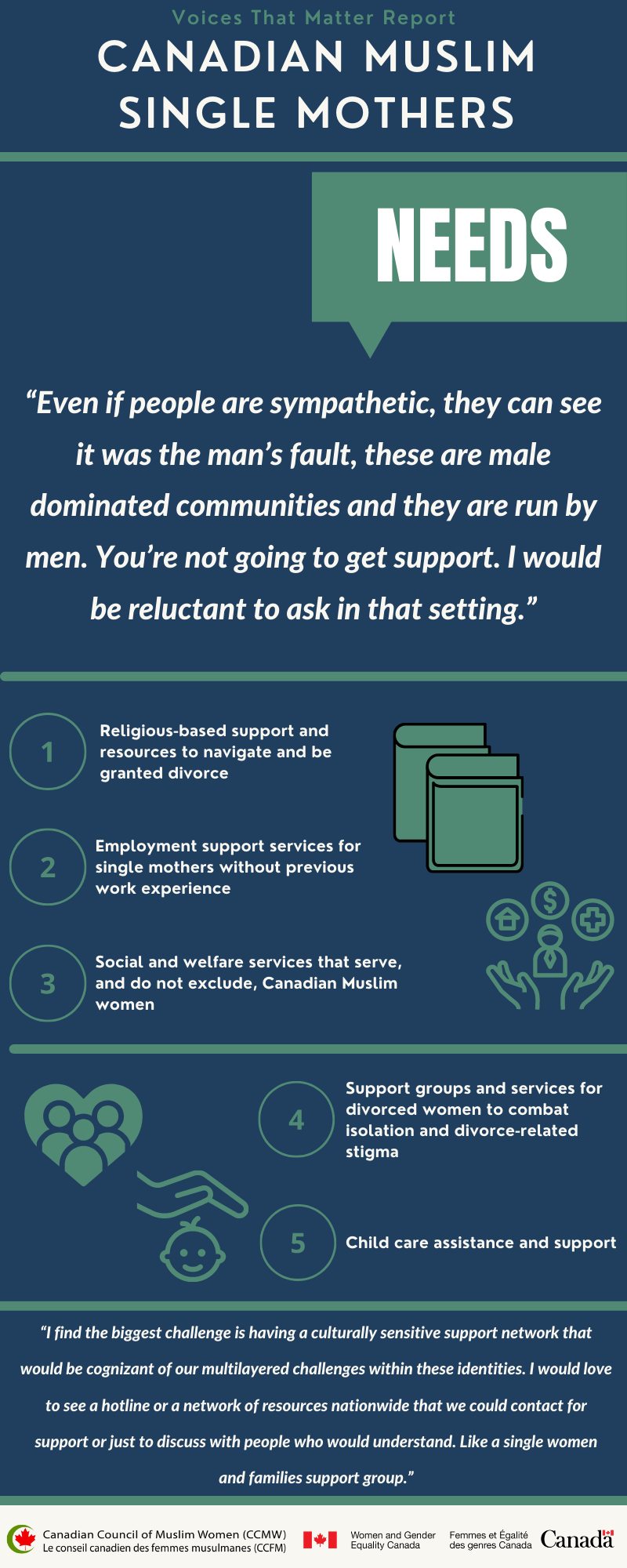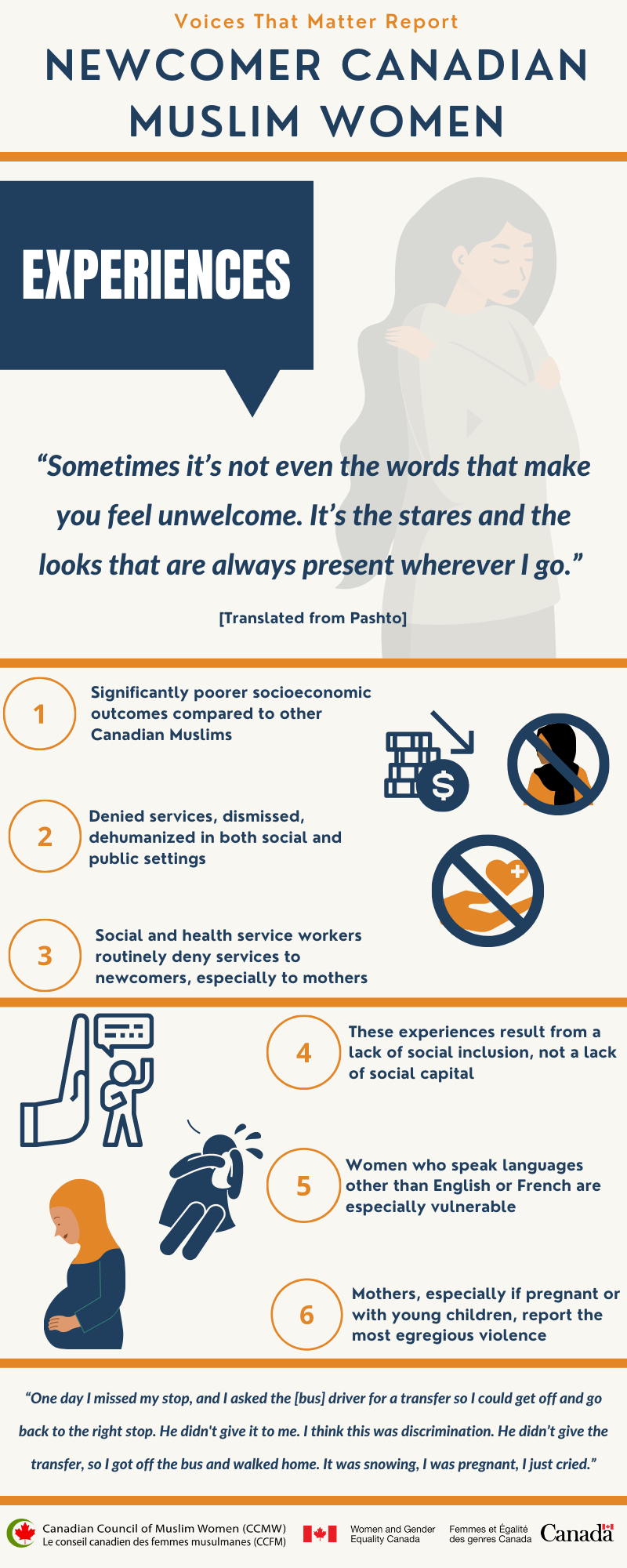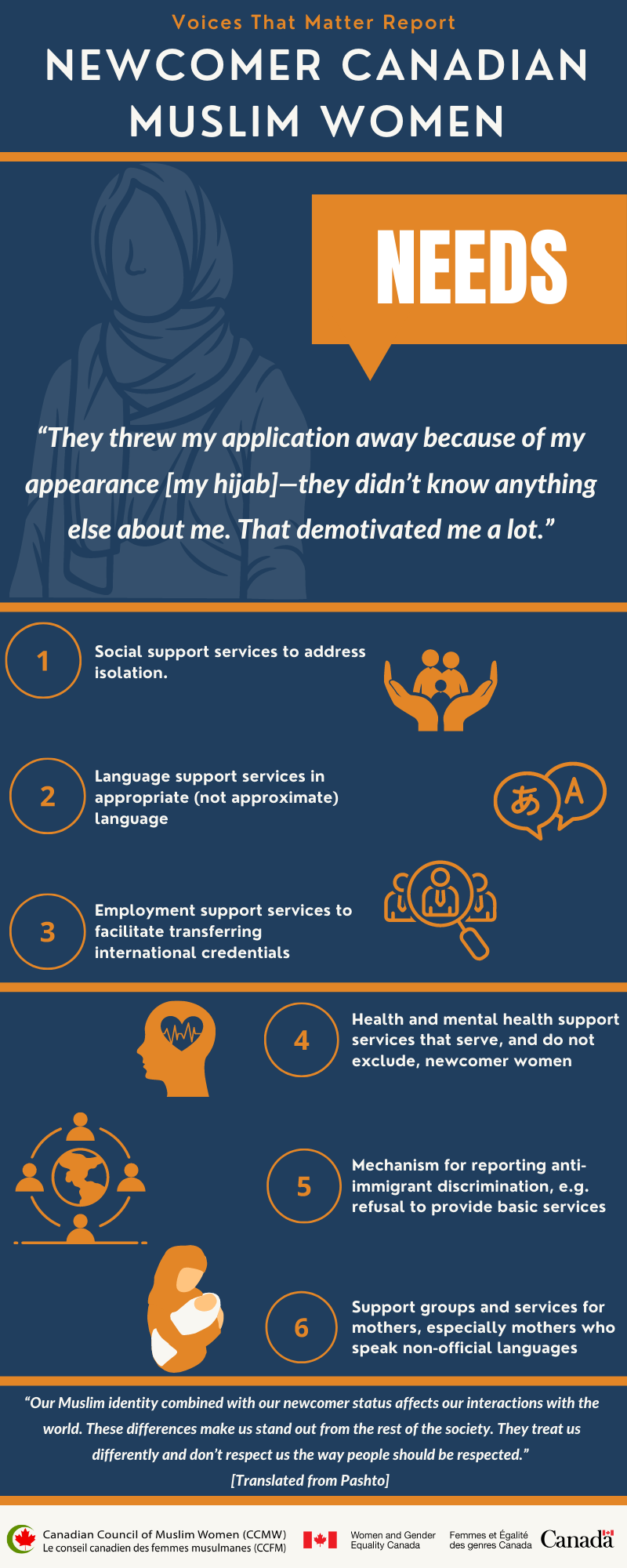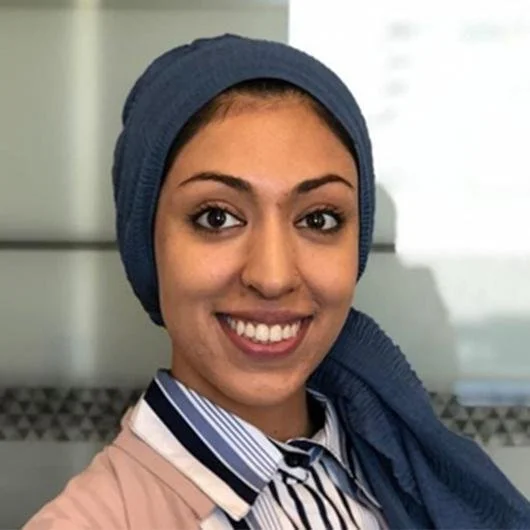CCMW's Voices that Matter Report
A groundbreaking research report investigating the experiences and outcomes of diverse groups of Canadian Muslim women.
Spearheaded by CCMW’s Research Consultant Dr. Sarah Shah, the project is the result of an unprecedented intersectional study of Canadian Muslim women.
Read the News Release here.
Read a Summary of Voices that Matter’s Findings and Recommendations here.
Voices that Matter applies an intersectional approach to explore the socioeconomic and demographic lived realities of Canadian Muslim women who are refugees, newcomers, Black, single mothers, queer, or women with diverse abilities.
The project is unique in its focus on women whose voices and realities are seldom heard or reflected in the work of other Muslim or mainstream organizations in Canada.
The results of this study will be published by CCMW in academic literature and will also be collected into a series of working reports to be presented by CCMW in policy forums. The results may also be shared by CCMW with relevant partners in academia, health care and social service institutions, community agencies, and government departments.
The research report was made possible through financial support from the Federal Department of Women and Gender Equality (WAGE).
For partnership inquiries, opportunities and information:
info@ccmw.com
For media inquiries, interviews and additional information:
media@ccmw.com
For technical questions on the research findings:
Dr. Sarah Shah, PhD, Principal Investigator
Research Consultant, Canadian Council for Muslim Women
ssarah.shah@mail.utoronto.ca
ABOUT VOICES THAT MATTER
Why is the project important?
Voices that Matter applies an intersectional approach to explore the socioeconomic and demographic lived realities of Canadian Muslim women who are refugees, newcomers, Black, single mothers, queer, or women with diverse abilities. Research and literature on Canada's Muslim women has traditionally viewed these women as a homogeneous community without taking into account the myriad differences in the various subgroups. The study offers a much-needed intersectional overview of the specific experiences and challenges of these different groups, and is designed to uncover the unique barriers and facilitators to positive socioeconomic and health outcomes among these groups.
How was the study conducted?
Spearheaded by CCMW’s Research Consultant Dr. Sarah Shah, the study analyzed disaggregated samples of Canadian Muslim women by their ethnic identity, immigrant status, socioeconomic status, geography, sexual orientation, and ability. The mixed methods research project drew on nationally representative quantitative data from the 2011 National Household Survey, as well as a series of focus group and individual interviews with members of the target groups. Research questions emerged from a review of literature and CCMW’s past research projects, as well as through feedback from consultations with CCMW board members and leadership.
What do the results indicate?
The results of the study reveal significant inequities in the sociodemographic and socioeconomic outcomes of Canadian Muslim women when compared to the outcomes of non-Muslim women. In addition, the study identified varying levels of disparities within different groups of Canadian Muslim women. This information can serve as a valuable resource on Canadian Muslim women for policymakers, community organizations, religious institutions, and decision-making bodies.
The report's findings and recommendations are summarized as a fact sheet here.
How can these findings help?
Viewing various subgroups within the Canadian Muslim women community through an intersectional lens can help facilitate much-needed inclusivity in policy making and service provision for these women. By taking an intersectional approach we are able to critically, intentionally, and mindfully centre the unique experiences of Canadian Muslim women and then identify solutions to address gaps in service provisions, with the understanding that these gaps need to be addressed at multiple levels.
How will CCMW use the findings?
The results of this study will be published by CCMW in academic literature and will also be collected into a series of working reports to be presented by CCMW in policy forums. The results may also be shared by CCMW with relevant partners in academia, health care and social service institutions, community agencies, and government departments.
Insights from the report will also help CCMW apply an intersectional approach to its future projects in order to better address the unique needs of diverse groups of Canadian Muslim women. The study is part of CCMW's Strengthening Capacity Project, which was launched in 2019 to improve CCMW's long-term sustainability and strengthen the capacity of the organization's national board and chapters to achieve equality for Muslim women and girls in all spheres of their lives.
VOICES THAT MATTER IN THE MEDIA
Dr. Sarah Shah discussed some of the key findings from the report on CTV News
Voices That Matter article in the Edmonton Journal
Voices That Matter article in American Muslim Today
ABOUT Dr. Sarah Shah
Sarah Shah (they/them), PhD, is an Assistant Professor at the Department of Sociology, The University of Toronto, Mississauga, a Research Fellow at the Institute of Islamic Studies, The University of Toronto, and a Research Consultant for Canadian Muslim organizations. They are a lead researcher at the Muslims in Canada Data Initiative (MiCDI). Their research focuses on the intersections of religion, family and gender relations, racialization and immigration, and mental health.
LAUNCH EVENT VIDEO
Dr. Sarah Shah joined us for the launch event on January 22nd for a presentation of the report followed by a live Q&A session.


